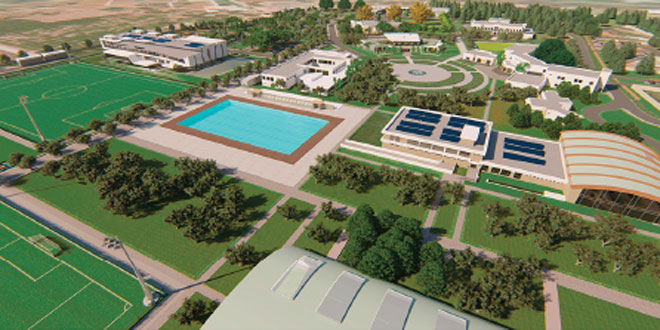
The achievements of Moroccan soccer, which are a testimony to the unprecedented revival of national teams in all categories, have been achieved thanks to the farsighted strategy established by King Mohammed VI.
On May 18, 2023, Morocco narrowly lost 2-1 in the final of the TotalEnergies U17 Africa Cup of Nations (Afcon) title in a dramatic finale at the Nelson Mandela Stadium in Algiers.
This follows the successes of other teams including the senior men’s national team which recently made history by getting to the quarter-finals of the 2022 Fifa World Cup in Qatar.
This has been possible thanks to a high level of infrastructure, planning and interest in academies and training centers.
The Atlas Cubs, who achieved a historic feat at the Africa Cup of Nations U17, were trained by the Mohammed VI Academy of Football (9 players), AS FAR (5), FUS (4), MAS, Hassania of Agadir, Ittihad of Tangier and Raja (1 player per club ed.). Achieving these results is a demonstration of the role played by the development of Moroccan soccer.
The Mohammed VI Football Academy, founded in 2009 in Salé, on the instigation of King Mohammed VI in his letter to the National Sports Conference held in Skhirat on October 24, 2008.
In this Royal letter, the King called for the development of a modern and efficient system to organize the sports sector based on the “restructuring of the national sports landscape and the upgrading of sports organizations with a view to their professionalization, as well as the democratization of the bodies responsible for their management”. This letter marked a turning point in the field of sports, after which several reform and restructuring projects were launched, including the Mohammed VI Football Academy.
The Mohammed VI Football Academy, the jewel that produces Moroccan stars, was built according to criteria that correspond to the best international standards in terms of training centers in order to put in place the conditions for the training of Moroccan talents, enabling them to play in the biggest soccer clubs, whether in Morocco or in Europe.
The achievement of the national A team, which was able to reach the semi-finals of the World Cup, gives confidence and assurance to all national teams in different age groups, including women’s teams.
The Royal Moroccan Football Federation (FRMF) continues its serious work in implementing the role of training centers in all clubs by providing them with adequate funding to invest in training and by arming them with logistical, material and moral means to better plan the management of national teams.
